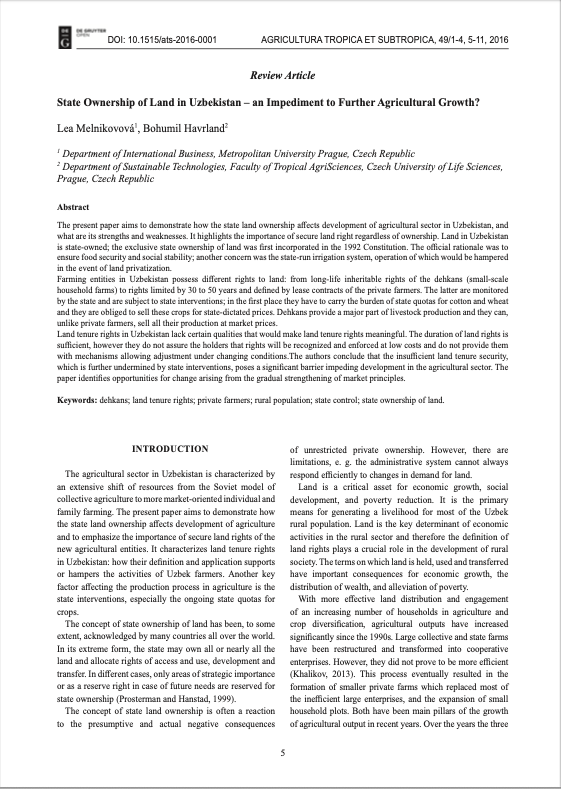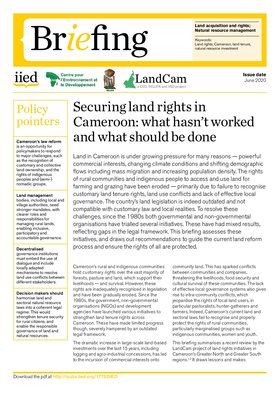State Ownership of Land in Uzbekistan – an Impediment to Further Agricultural growth?
The present paper aims to demonstrate how the state land ownership affects development of agricultural sector in Uzbekistan, and what are its strengths and weaknesses. It highlights the importance of secure land right regardless of ownership. Land in Uzbekistan is state-owned; the exclusive state ownership of land was first incorporated in the 1992 Constitution. The official rationale was to ensure food security and social stability; another concern was the state-run irrigation system, operation of which would be hampered in the event of land privatization.



